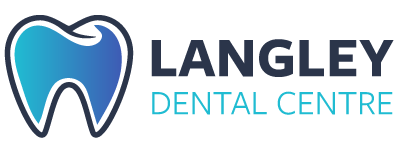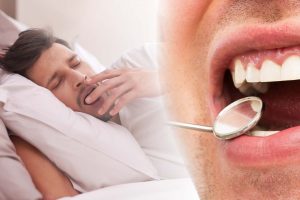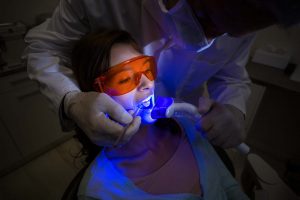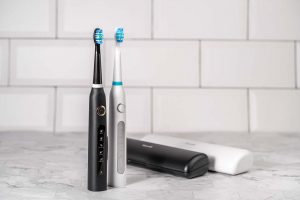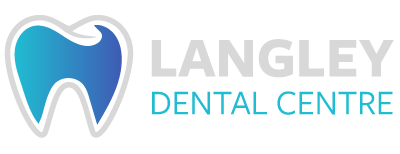The proverb “An ounce of prevention is worth a pound of cure” definitely applies to dental health. Ever since we were kids, our parents and teachers encouraged us to make proper hygiene a part of our daily routine. There is a number of factors that can affect the health of our teeth and gums that may be beyond our control but we can minimize the possibility of unhealthy teeth by adhering to some basic practices. Keep in mind that, according to research, your oral health does have an effect on your overall health. So, maintaining good oral health and healthy teeth is not just about cavities and toothaches.
Ways to Keep Your Teeth Healthy
Keeping your teeth healthy is just as important as keeping your overall health in check. In order to keep your pearly whites smiling, you need to regularly incorporate habits that not only promote oral health but also prevent further issues from arising. A healthy smile isn’t just something that looks good on the outside—it can actually help you feel more confident with how you look from the inside out.
The best way you can keep your teeth healthy isn’t something that is necessarily difficult or time-consuming, but it’s an easy habit that anyone can get into and reap all kinds of benefits from it over time. As such, it’s well worth incorporating. Here are six simple ways:
1. Brush and Floss Your Teeth Properly
One of the most important and basic habits you need to adopt is brushing your teeth at least twice a day. Ideally, you should brush your teeth after every meal. It’s also important to keep in mind that you should never skip brushing at night before going to bed since it helps you get rid of the germs and plaque that accumulate throughout the day.
Brushing Technique
However, brushing for the sake of brushing is not enough, you need to use the correct technique and tools to maintain healthy teeth. For example, you should brush using small gentle circular motions, not back-n-forth. You also need to ensure that you brush the front, back, and top of every tooth. In order to brush your teeth properly, you may need to spend about 2 to 3 minutes. If you rush and don’t brush properly, any plaque that remains on your teeth can harden, leading to calculus buildup and gum disease.
Another part of your brushing technique that is also important is how hard you brush. By brushing your teeth with a lot of force or using a hard-bristled toothbrush, you can damage your tooth enamel and the gums. If you do damage your gums and tooth enamel, you may experience tooth sensitivity, as well as permanent damage to your enamel on the teeth, and gum erosion.
Please note that after brushing your teeth, don’t IMMEDIATELY rinse your mouth with water or mouthwash since it will wash away the fluoride and reduce its benefits to your teeth.
If you’d like to find out about the dental hygiene product you should be using, check out the Canadian Dental Association’s page on “Products” or contact Langley Dental Centre for more information.
2. Use Products that Contain Fluoride
Fluoride is a natural mineral that can help prevent cavities. It is added to toothpaste, and mouthwash to fight germs that can lead to decay. Fluoride also acts as a protective barrier for your teeth. Research has shown that fluoride deficiency can lead to tooth decay, even if a person practices good oral hygiene.
3. Use Mouthwash
Mouthwash or mouth rinse should also be used at least twice a day but not IMMEDIATELY after brushing your teeth to prevent diluting the effects of your toothpaste. Using mouthwash can be helpful in removing plaque, killing bacteria, and re-mineralizing your teeth. It is especially helpful for children and the elderly who may lack the ability to properly brush and floss their teeth.
When you rinse with mouthwash, you have to swish it in your mouth for at least 30 seconds and then expel it (spit it out). Also, remember to avoid eating and drinking for at least 30 minutes after using it in order to allow it to take effect.
There is a wide variety of mouthwash products available, so you should ask your dentist to recommend the most appropriate for your needs. Remember, however, that you can’t substitute brushing and flossing with your mouthwash!
4. Consider Dental Sealants
A dental sealant is a thin plastic film painted on the chewing surfaces of molars and premolars to prevent cavities. It is a painless procedure that has been shown to be highly effective in the prevention of cavities. According to the Centers for Disease Control and Prevention, they can protect your teeth by blocking out germs and food. They have been found to protect against 80% of cavities for 2 years and against 50% of cavities for up to 4 years.
5. Don’t Smoke or Consume Alcohol
You probably know how harmful smoking is to your general health – your lungs and heart. But did you know that smoking is also extremely detrimental to your oral health? Not only does smoking stains your teeth and causes bad breath (halitosis), but it also encourages plaque and tartar build-up which lead to cavities, gum disease, and tooth loss. If you smoke, you also increase your chances of oral cancer as well. What’s more, smoking can weaken your immune system and your mouth’s ability to heal after an injury.
Likewise, regular alcohol consumption can harm your oral health. Many people don’t realise that alcohol can dry their mouth by reducing saliva production. This is harmful to oral health since a dry mouth creates the ideal conditions for bacteria and plaque to flourish. Additionally, many alcoholic beverages contain high amounts of sugar and can be acidic which lead increases the chances of tooth decay and gum disease. If you are a regular drinker, you also have a higher probability of developing oral cancer as well.
6. Visit Your Dentist Every Six Months
Naturally, you should visit your dentists and dental hygienist at least twice a year for a dental check-up and dental cleaning. Having your teeth professionally cleaned twice a year at Langley Dental Centre, in Langley BC, can help remove dental plaque and reduce the buildup of harmful oral bacteria. By removing plaque, you can minimize the accumulation of minerals from your saliva that hardens into dental calculus or tartar.
Brushing and flossing are not sufficient to remove tartar which is why professional dental cleanings are important. If you don’t keep up with your routine bi-annual cleanings plaque can destroy your tooth enamel, cause cavities, and even gum disease which can lead to tooth loss.
Regular dental exams and cleanings, once every six months help protect your health and reduce your risks of systemic diseases. Consulting your dentist at Langley Dental Centre will help you maintain your oral health.
Langley Dental Centre performs various oral exams as part of our preventative dentistry routine. With exams, we can evaluate the condition of your teeth and gums to detect any subtle changes or potential problems. X-rays are also used for proper diagnosis, allowing us to determine if any problems exist that are not immediate to us during a regular oral exam.
Our dentists are genuinely concerned about every patient’s dental health and well-being. This makes them one of the favorite dentists for many in Langley, BC. Call us at 604-455-6247 or contact us online to book your appointment today!
